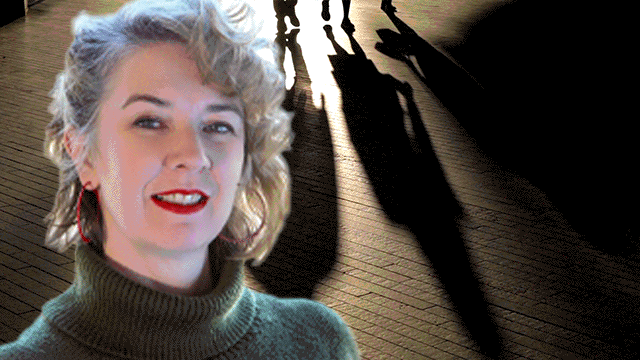Jane Gilmore: We tell women to report rape, sexual assault. Then we make it impossible to do


Last week the AFP sent a stern warning to federal MPs about the dangers of failing to report crimes – such as rape – to police.
Parliamentarians and the worst elements of the social media swill latched onto this warning after an allegation of rape was made about a cabinet minister.
It’s a matter for the police and the justice system, we’re told. If it’s not proven in a court, there’s no substance to the claim.
OK, sure, but while police continue as the gatekeeper to all the other structures that exist to silence the raped and protect the rapists, this looks like nothing more than another exercise in silencing women.
Tweet from @BrittHiggins_
The Australian Bureau of Statistics (ABS) says there were almost 27,000 sexual assaults reported to police in 2019.
ABS data also says only about 13 per cent of sexual assaults are reported to police, which means there was about 207,000 cases in a single year.
That same year, just over 6000 people went to court and 2000 were jailed for violent sexual crimes.
That’s two men in prison for every 207 people assaulted. It’s difficult to see how this is justice.
Obviously there’s not a one-to-one correlation on this data, but the rates don’t change much over time, so it’s a pretty good indication of what the legal system does with rape claims.
Four years ago Emma* went out to celebrate a friend’s birthday. She met a man who she thought was nice.
“He seemed a bit shy, but funny, y’know, in a quiet way. He bought me a few drinks and I was suddenly really, really drunk,” she said.

Emma’s interaction with her rapist started out seemingly innocently. Photo: Getty
Emma doesn’t think her drink was spiked, but she suspects the man was deliberately ordering very strong drinks.
“I don’t remember it very clearly, but somehow we ended up in his car. He raped me. It was so sudden and he was so big. I couldn’t stop him,” she said.
“I couldn’t even breathe. After it was over, he took me home and started acting like he was just this nice guy.
“He helped me inside. He even poured a glass of water for me. I was just frozen or something.
I can’t believe I let him in my flat, but I couldn’t think normally.”
Afterwards, Emma did everything she was supposed to do. She went to police the next day.
They took her to hospital for a rape kit and took a statement.
“The cop looked so disgusted when I told him I couldn’t remember anything about the man. I knew his first name, but I couldn’t remember what kind of car he drove or where we were when he raped me,” Emma said.
“He told me they’d get back to me if they found him, then he said, ‘You should be a bit more careful about how much you drink’.
“I never heard from them again.”
Tweet from @JaneTribune
Research in Australia and overseas has shown that when both the victim and the rapist have been drinking, police “question the validity of the rape, view the victim negatively, and judge the assailant as more likeable”.
Alcohol is often a factor in sexual assaults. Rather than being, as it is often presented, a reason to blame people who are raped, it is far more likely to be wielded by rapists as a weapon to incapacitate their victims.
This is something many of the highly trained police in the specialist sexual assault units available in most major cities understand. It’s not nearly so well understood by your average station cop.

Day-to-day police officers often aren’t trained in the highly specialised field of dealing with sexual assault crimes and victims. Photo: Getty
Culture within various police jurisdictions is a significant factor.
The 2017 Victorian Human Rights Review of sexual harassment in Victoria Police found “the evidence shows sex discrimination and sexual harassment to be prevalent and widespread in the organisation”.
This is by no means isolated to Victoria; similar problems have been found in other states.
How can an organisation rife with discrimination against women and enabling (or at least ignoring) sexual violence within its own ranks be expected to deal sympathetically with victims of exactly this behaviour who come to them seeking justice?
Add to that, the entirely justified fear many First Nations people have about reporting anything to police.
Or the seeming impossibility of reporting rape if you are a sex worker or homeless or battling addiction.
The ABC recently published an excellent analysis of how and why police fail victims of sexual assault for anyone interested in more information on this topic.
Reporting rape to police is clearly not the panacea police and parliamentarians want it to be.
For the less than 25 per cent of reports to police that make it to court, this is just the beginning of a long and traumatic journey through the “justice” system (which can take up to two years) and only rarely ends with a rapist being convicted.
Apart from the charges dropped by prosecutors, there’s the trauma of a trial.
“Worse than the rape itself,” is how one woman described it – and she was one of the few who got a conviction. She’s far from alone.
A 2017 study compared the cross examination of victims in rape trials from the 1950s to similar trials between 1996 and 2011.
They found that, despite significant law reform in that time, the tactics used by defence lawyers to discredit victims had barely changed.
If anything, lawyers in contemporary cases asked more questions and used more rape myths and false stereotypes to discredit the character of the victim and gain an acquittal.
Finding “justice” requires rape victims to undergo a trial that many of them find as traumatic as being raped. How can anyone read that sentence and think there is justice for rape victims in the justice system?
It’s a double bind. The legal system is permeated with the misogynistic attitudes that contribute to blaming women for being raped and protecting men who commit rape, and the result of this is the appallingly low conviction rate for men who commit sexual violence.
But women are also told they have no right to speak about violence committed against them unless it’s proven in court.
If police and parliamentarians genuinely want rape and sexual assault victims to report crimes committed against them, they have the power to make that possible. Maybe.
If they were willing to tear down all the structures in the justice system that result in rape having the lowest rates of reporting, investigation, charges, trial and conviction of any crime.
Without that, insisting that reporting to police is the only right way to respond to rape looks more like collusion in PR management than any real concern for victims.
Jane Gilmore is a freelance journalist with a strong interest in campaigning against violence against women. She also founded The Kings Tribune
- For confidential help and support around sexual assault, contact 1800 RESPECT online or by phone on 1800 737 732








